Special
The 6 best period tracking apps of 2024
Whether you’re looking for a way to monitor your ovulation or you simply want to map your periods, look no further than these five apps
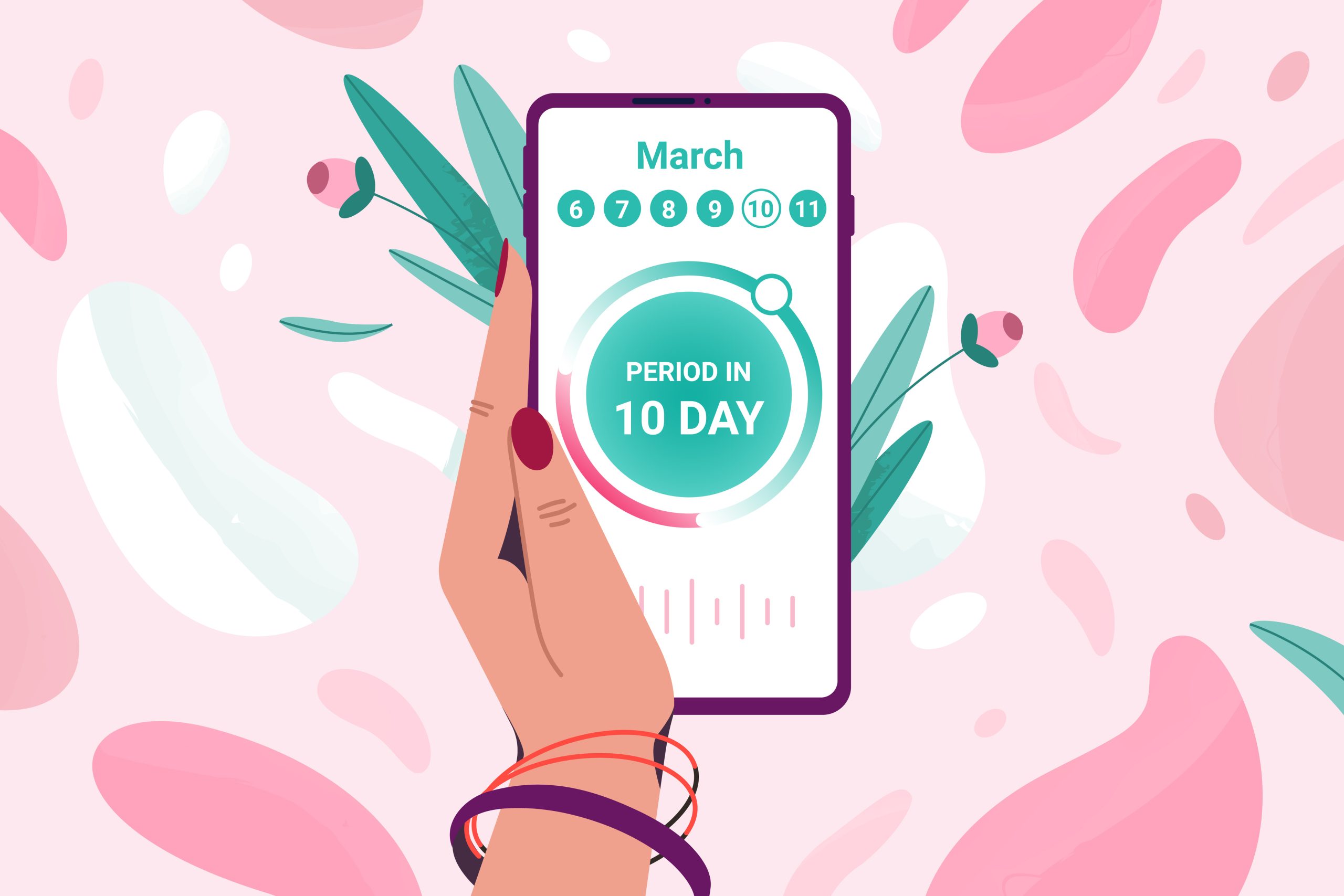
Period tracking apps have gained significant popularity in recent years. As awareness around menstrual cycles has increased, so has the demand for tools to help monitor and manage them.
Data suggests that more than 50 million women worldwide use apps to track their menstruation. But is an app really necessary? Can’t a reminder on your phone’s calendar do the same thing?
Well, tracking your menstrual cycle is crucial for several reasons. Firstly, it helps you better understand your body and aids in predicting and managing fertility. Knowing when you’re ovulating can be invaluable if you’re trying to conceive or avoid pregnancy.
Secondly, it can help you manage your menstrual symptoms. Many women and girls experience fluctuations in mood, energy levels and physical symptoms throughout their cycle. By tracking how you feel, you can anticipate when symptoms might arise and identify patterns, which in turn will help you take proactive steps to manage them.
Tracking your menstrual cycle can also provide insights into your overall health. Irregularities in the menstrual cycle could be indicative of underlying health issues such as hormonal imbalances, thyroid disorders, or polycystic ovary syndrome (PCOS).
We know choosing which app to download can be overwhelming. That’s why we’ve put together a list of six of the best ones we’ve come across.
Note: all are free to download, but some charge extra for premium features.

Nexus isn’t just a cycle tracker, it’s a holistic women’s health coach which includes a cycle tracker but also nutrition, exercise and more to give you a more comprehensive experience when engaging with Nova, your AI coach
Nexus bridges this gap with a female-specific onboarding process offering over 50,000 unique combinations of personalised wellness insights.
With Nova, users also have access to an AI coach that truly knows them, offering adaptive, actionable guidance grounded in science and tailored to each woman’s unique physiology and life stage.
The vision behind Nexus is to give women control over their own health data, using it to improve conversations with healthcare providers, reduce medical gaslighting and accelerate diagnosis times through advocacy and education.
At the heart of Nexus lies a proprietary large language model (LLM) and peer-reviewed health database, built specifically for women. This architecture blends medical research, clinical guidelines and user data to generate precise recommendations, far surpassing the capabilities of off-the-shelf AI systems.
- Built by medical professionals and scientists. Our team of experts have built, reviewed and tested this product.
- AI-powered health coach Nova, built from scratch to handle the bias and hallucinations for women’s health with AI
- Personalized experience: Nexus adjusts predictions and recommendations to each user’s unique cycle and health characteristics.
- Nexus is free with no upsales or features behind the pay wall.
- 5* reviews in the App Store.
- Your data is private. We don’t share your personal data with the AI model or any 3rd parties.
Nexus is only available on the UK Apple app store currently. You can download the app here or join the international / Android waitlist here. Coming early 2026.
Flo
Flo’s mission is to build a better future for female health by helping to harness the power of body signals. Flo’s team of 100+ doctors and health experts create evidence-based medical articles, tips and recommendations designed to improve your health.
The app uses AI so you can easily know when you ovulate, track your period and view future cycles. In Flo, you can track more than 70+ symptoms and events for more personalised tips, relevant content and even more precise cycle and ovulation predictions.
Flo also offers Pregnancy Mode which provides you with the information you need during pregnancy. You will be able to receive insight each day into how the baby is developing, what happens in your body as a mum-to-be, which supplements and foods you should include in your diet and which you should avoid, how to recognise the approaching labour, what you could expect from the postpartum period and much more.
Within the app you can also discuss sensitive topics, questions and get support from other Flo community members anonymously.
Flo ensures that your data is safe with end-to-end encryption, secure access (Face or touch ID), anonymous mode (no name or email) and control over what you share. Your data won’t be shared with third parties.
For more, click here.
Clue
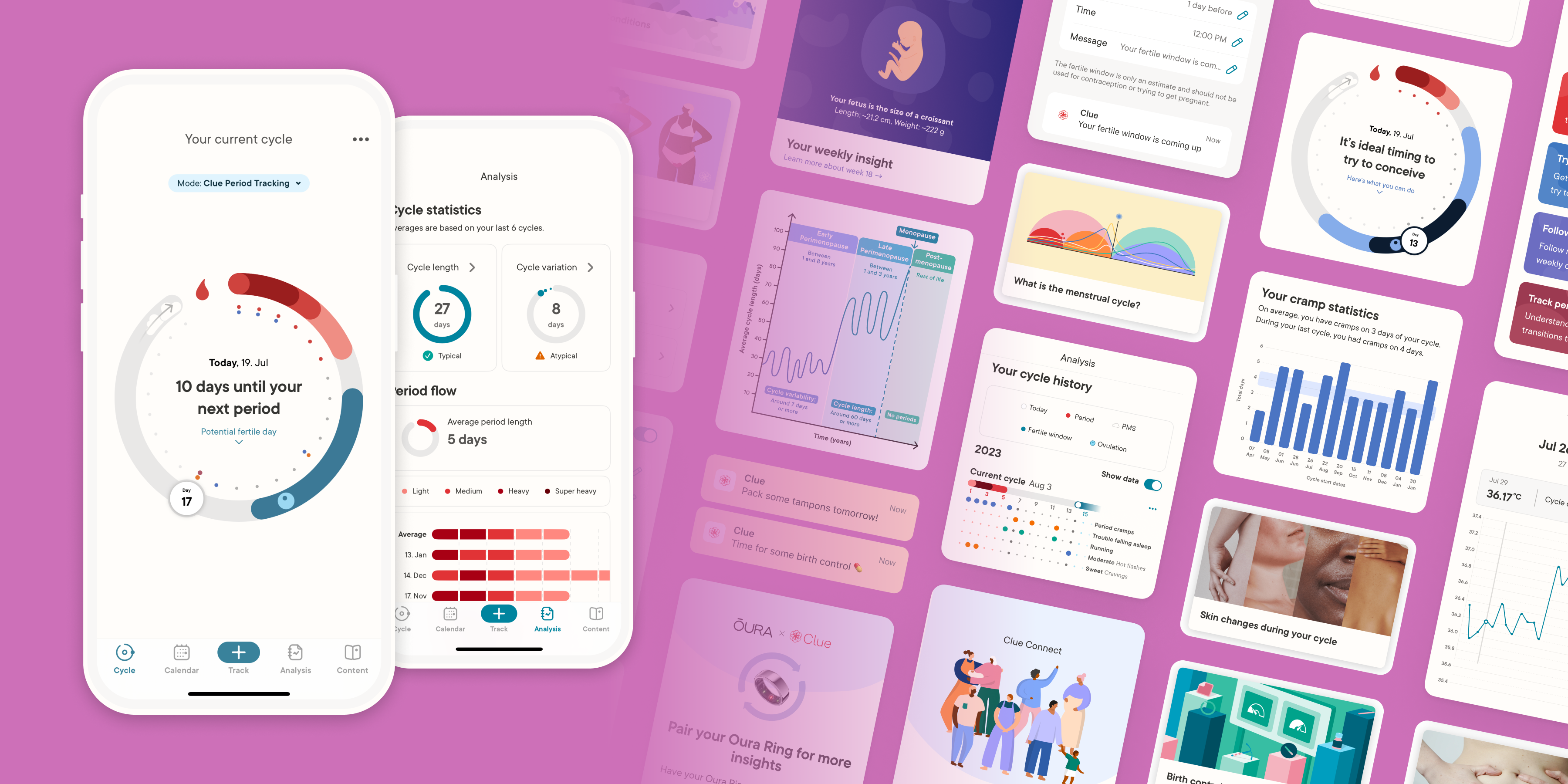
Clue is a Berlin-based, women-led menstrual and reproductive health app that harnesses the power of full cycle intelligence to help you understand your body’s inner workings, beyond bleeding.
What do people who use Clue love the most? No pink. No myths. And no taboos. Clue is an intuitive, science-based, data-driven cycle health tracker with 100+ different tracking options and a powerful algorithm to help you live a life more in sync with your full cycle – not just to predict your period (although it does that too!).
Loved by over 10 million monthly active users across 190+ countries, and available in 20+ languages, the Clue app intuitively guides you through each cycle, change, and choice. From general cycle health awareness and education to fertility, pregnancy, and even navigating perimenopause.
New in 2024, is Clue’s My Health Record feature which uses de-identified data for good, to help close the diagnosis gap for female health conditions.
You can enter confirmed diagnoses for up to 21 different health conditions including endometriosis, polycystic ovary syndrome (PCOS), premenstrual dysphoric disorder (PMDD), uterine fibroids, bleeding disorders, anxiety disorders, and more. With this feature, the Clue community is collectively building an unprecedented dataset linking confirmed diagnoses and tracked cycle data to enable impactful research on the most commonly misdiagnosed and under-researched female health conditions.
The Clue app is free to download and you can unlock deeper insights and additional personalised modes like Clue Conceive, Clue Pregnancy, and Clue Perimenopause with the premium subscription, Clue Plus.
For more, visit helloclue.com.
luna
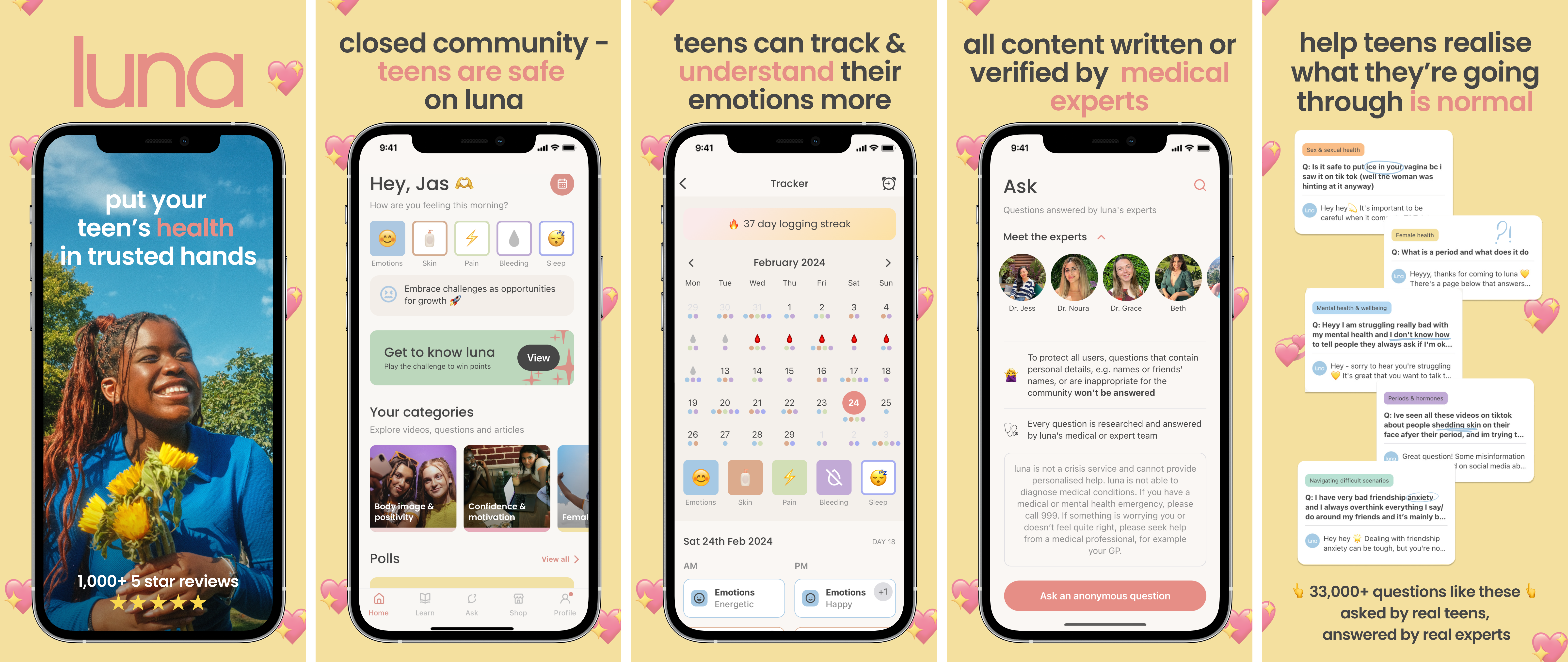
luna is on a mission to be the go to digital health and wellbeing resource for teens.
Taking a holistic approach to health and wellbeing, luna’s objective is to educate, empower and support teens in all the tricky situations they find themselves in – from period leaks to skin problems and toxic friendships.
On luna (‘we are luna’ on the App Store), teens can track their periods, moods, skin, sleep and pain symptoms, and they’ll receive personalised insights and recommendations based on that.
Alongside period tracking, teens can ask anonymous questions, and learn about topics tailored to them. Behind the articles, videos and answers to questions is a team of doctors and safeguarding experts, who make sure content is medically accurate and appropriate for a teenage audience – there’s no user generated content on luna, so parents know their teen is in safe hands.
This app is designed to help teen girls own and understand their cycles, ensuring they know what steps to take when they feel something isn’t normal for them personally – luna equips them with the right tools to open lines of communication with parents, and seek support when they need.
There are also lots more features designed to spark joy and keep the app sticky – whether that’s a mood-boosting quote based on what members log, quizzes to help cement learning, or polling on topics they might want to share their thoughts on.
All of these features mean luna is much more than just a teen-friendly period tracker and is an app that parents and daughters alike will love.
For more, visit weareluna.app
Premom

Premom blends period tracking with powerful ovulation and hormone insights—ideal for anyone who wants to get in sync with their body or planning for pregnancy.
Going beyond basic period trackers, Premom uses real data like ovulation tests and basal body temperature (BBT) to personalise predictions and help you better understand your fertile window.
With a digital ovulation test reader, auto BBT-charting, and an intuitive period calendar, tracking is simple and accurate.
Developed by the creators of Easy@Home ovulation tests, Premom helps you visualize your cycle and spot changes month to month.
Whether you’re tracking your period or planning a pregnancy, the app adapts to you. Over 1 million users have gotten pregnant using Premom*.
FastPass™ to Pregnancy offers a clear, guided path to conceive faster with smarter predictions, weekly expert check-in videos, and tailored cycle tips, all backed by your data.
The app’s algorithm builds a personalized fertility timeline that adjusts to your cycle patterns and gets more accurate the more you log.
Need help interpreting your cycle? Use Premom’s Fertility AI Pro for health insights based on your unique data patterns and symptoms—so you can get guidance whenever questions come up.
Already expecting? Premom seamlessly switches to Pregnancy Mode offering weekly updates, symptom tracking, and expert tips to support you through every trimester.
For deeper insights, Premom Premium unlocks advanced reports, expert-led webinars, and extra tools to help you feel more confident with every cycle.
The Premom app is free to download, with the option to upgrade for even more support on your reproductive health journey.
Learn more at www.premom.com.
*Over 1 million users logged pregnancy or positive pregnancy test results while using the Premom App 2023
WomanLog
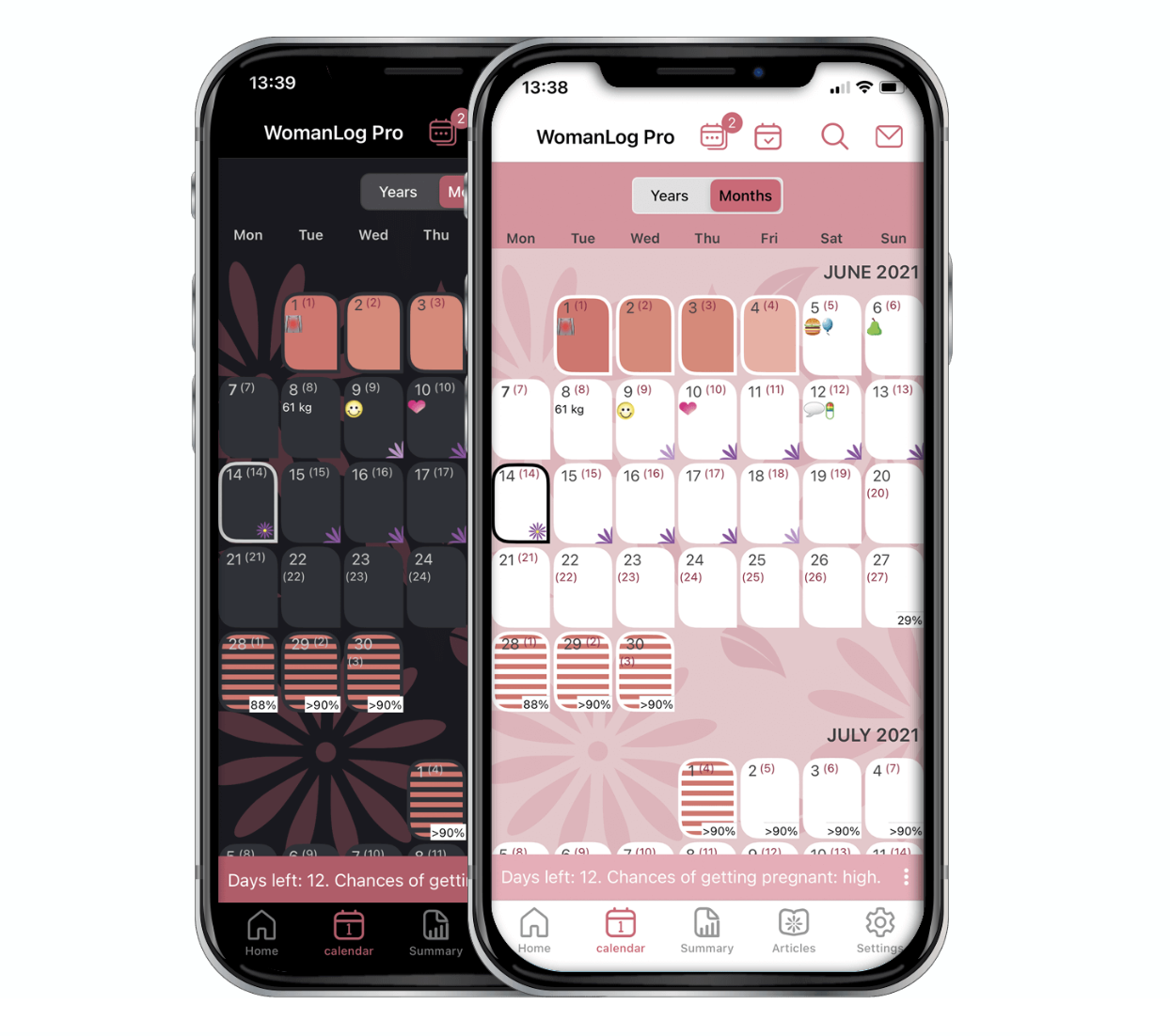 There are dozens of complex processes that take over a woman’s body every day. Why not be aware of them and be prepared for everything?
There are dozens of complex processes that take over a woman’s body every day. Why not be aware of them and be prepared for everything?
WomanLog is an easy-to-use period tracker app that helps you do just that. With an encyclopedia of more than 200 symptoms that may occur during a woman’s menstrual cycle, it is much more than a digital calendar that tracks menstruation cycle, sex life and contraception.
The app has three modes: period tracker, pregnancy and menopause mode. WomanLogBaby app helps to track every step of baby’s daily activities while “Intelligent Assistant” with cutting-edge Artificial Intelligence and Machine Learning technology offers even more detailed analysis.
WomanLog also provides an extensive library of articles on sexual wellbeing, menstruation, the ins and outs of pregnancy and other health-related issues.
The Latvia-based start-up is among the leaders in the global market for more than 10 years. Translated into 30 languages, it has more than one and a half million monthly active users worldwide and more than 20 million installs.
Data safety in the key point of every app, and WomanLog is the leader with the highest security level that meets all the GDPR standards.
Moreover, the web version of WomanLog, available without even signing-in, features online calculators that count the days left until your next period or fertility windows within seconds.
For more, visit womanlog.com.

News
HIV research paves way for new ovarian cancer therapies

HIV research has identified a new target for ovarian cancer by selectively blocking a cleft in the retinoblastoma protein that protects tumour-supporting macrophages.
The discovery could make ovarian – and potentially other – cancers more responsive to immunotherapies, treatments that use the body’s immune system to fight disease.
Scientists at the Wistar Institute found that targeting a specific cleft in the retinoblastoma protein removed only tumour-supporting macrophages while sparing those that fight disease.
Macrophages are immune cells that can either attack tumours or shield them from harm.
The work builds on decades of HIV studies led by Dr Luis Montaner, executive vice president of the Wistar Institute and director of its HIV Cure and Viral Diseases Center.
Montaner said: “This target emerged from our work understanding how macrophages survive HIV infection.
“It shows how insights from one field of medicine can inform breakthroughs in another.”
Targeting tumour-protecting macrophages without harming beneficial ones has long been a challenge.
Wistar researchers showed that selectively inhibiting this protein cleft depleted only tumour-supporting macrophages, leaving protective immune cells intact. Animal studies confirmed tumour shrinkage using this approach.
Montaner said: “This is a first-in-kind target against a solid tumour.
“It opens new avenues for therapies that could complement existing immunotherapies.”
The study highlights the value of long-term, cross-disciplinary research. It took more than 10 years from the initial HIV-linked finding to identifying this cancer target.
Next steps include exploring applications in acute myeloid leukaemia, pancreatic cancer and combination therapies.
Mental health
US incineration of contraceptives denies 1.4m African women and girls lifesaving care, NGO says
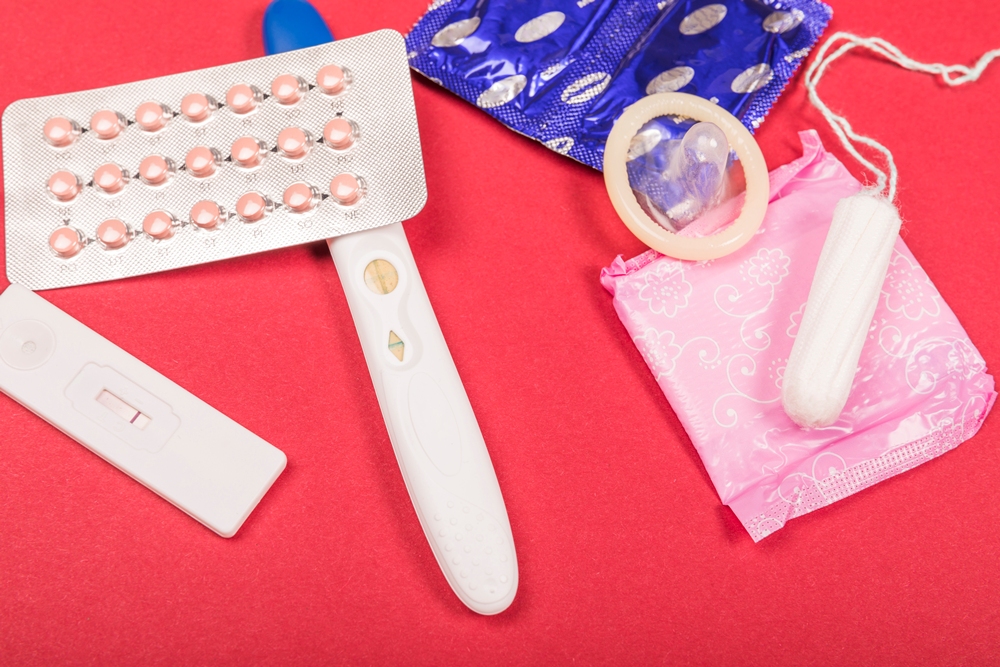
The US decision to incinerate US$9.7m worth of contraceptives is expected to result in 174,000 unintended pregnancies and 56,000 unsafe abortions across five African countries.
The medical supplies, many of which were not due to expire until between 2027 and 2029, would have supported more than 1.4 million women and girls in the Democratic Republic of Congo, Kenya, Tanzania, Zambia and Mali.
The products had already been manufactured, packaged and prepared for delivery. Around 77 per cent were earmarked for distribution in the five African nations.
The International Planned Parenthood Federation (IPPF), a global healthcare provider and advocate for sexual and reproductive rights, offered to take the contraceptives for redistribution at no cost to US taxpayers. The offer was declined.
IPPF said the decision would deny women and girls in the affected countries access to lifesaving care.
Tanzania will be hardest hit, losing more than 1 million injectable doses and 365,100 implants – small devices inserted under the skin that release hormones to prevent pregnancy.
This amounts to 28 per cent of the country’s total annual contraceptive need.
Dr Bakari, project coordinator at Umati, IPPF’s member association in Tanzania, said: “We are facing a major challenge.
“The impact of the USAID funding cuts has already significantly affected the provision of sexual and reproductive health services in Tanzania, leading to a shortage of contraceptive commodities, especially implants.
“This shortage has directly impacted clients’ choices regarding family planning uptake.”
In Mali, women will lose access to 1.2 million oral contraceptive pills and 95,800 implants, nearly one-quarter of the country’s annual requirement.
In Zambia, 48,400 implants and 295,000 injectable doses will no longer be available. In Kenya, 108,000 women will go without contraceptive implants.
Marie Evelyne Petrus-Barry, IPPF’s Africa regional director, called the move “appalling and extremely wasteful”.
She said: “These lifesaving medical supplies were destined to countries where access to reproductive care is already limited, and in some cases, part of a broader humanitarian response, such as in the DRC.
“The choice to incinerate them is unjustifiable.”
In Kenya, the cuts compound an already strained system.
Nelly Munyasia, executive director of the Reproductive Health Network in Kenya, said stocks of long-term contraceptives had already run out, and warned of further consequences.
She said: “There is a 46 per cent funding gap in Kenya’s national family planning programme,.
“These systemic setbacks come at a time when unmet need for contraception remains high. Nearly one in five girls aged 15 to 19 are already pregnant or has given birth.
“Unsafe abortions remain among the five leading causes of maternal deaths in Kenya.”
Munyasia also warned that health workers’ skills are being eroded and said a lack of contraceptive access would increase maternal deaths as more women seek unsafe abortions.
While Kenya’s 2010 constitution allows abortion when a pregnant person’s life or health is at risk, the 1963 penal code still criminalises the procedure.
As a result, healthcare providers often avoid offering abortion care, even in emergencies.
A US state department spokesperson confirmed last month that the decision to destroy the supplies had been authorised.
Reports indicated the products were to be incinerated in France, prompting the French government to say it was “following the situation closely” following objections from rights and family planning groups.
The state department said the contraceptives could not be sold or donated to “eligible buyers” due to US legal restrictions, which prohibit foreign aid to organisations that provide abortion services, counsel on abortion, or advocate for abortion rights overseas.
News
Gates foundation pledges $2.5bn to ‘ignored’ women’s health issues

The Gates Foundation will invest US$2.5bn in women’s health research by 2030, it announced on Monday, focusing on conditions from preeclampsia to menopause.
The pledge is around one-third more than the foundation spent on women’s and maternal health research and development over the past five years.
It is also among the first major commitments since Bill Gates said he would give away his US$200bn fortune by 2045.
Gates said: “Women’s health continues to be ignored, underfunded and sidelined. Too many women still die from preventable causes or live in poor health,” said Gates.
“That must change.”
The new funding will support research into under-studied conditions affecting hundreds of millions of women in both high- and low-income countries.
These include preeclampsia – a pregnancy complication that causes high blood pressure – and gestational diabetes, as well as heavy menstrual bleeding, endometriosis and menopause.
Investment will focus on five priority areas: obstetric care and maternal immunisation; maternal health and nutrition; gynaecological and menstrual health; contraceptive innovation; and research into sexually transmitted infections.
The aim is to kickstart research, develop new products, and ensure equitable global access to treatments.
Just one per cent of healthcare research and innovation spending goes to female-specific conditions beyond cancer, according to a 2021 analysis by McKinsey & Co.
Dr Anita Zaidi, the foundation’s head of gender equality, said the field has been held back by data gaps and bias.
She noted that key questions remain unanswered – including how some medicines interact with the uterus.
She told Reuters: “If you look at the literature, there may be only 10 women who’ve been studied, ever.
“We don’t even have the answers to these basic questions.”
Zaidi said the US$2.5bn pledge is a “drop in the bucket” compared to what is needed, and called on governments, philanthropists and the private sector to step in.
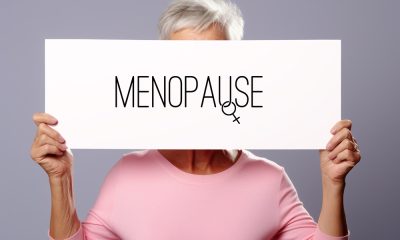
 News2 weeks ago
News2 weeks agoFDA plans to revise black box warning on menopause hormone therapies
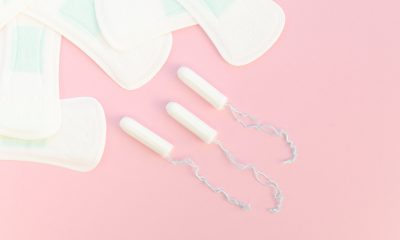
 News9 hours ago
News9 hours agoDozens of women report suffering painful burns after using Always sanitary towels

 News2 weeks ago
News2 weeks agoAI-powered women’s health companion Nexus launches in UK
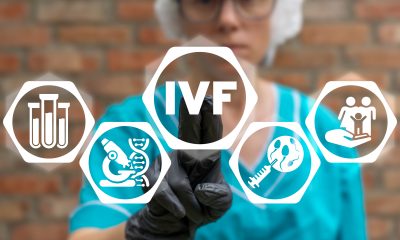
 News2 weeks ago
News2 weeks agoScientists turn human skin cells into eggs in IVF breakthrough

 Insight6 days ago
Insight6 days agoWomen’s health innovations recognised in TIME’s Best Inventions 2025

 News2 weeks ago
News2 weeks agoDaily pill could delay menopause ‘by years,’ study finds

 News2 weeks ago
News2 weeks agoAncient herb to modern must-have: Why ashwagandha is capturing UK women’s attention

 Menopause3 weeks ago
Menopause3 weeks agoNew report exposes perimenopause as biggest blind spot in women’s health





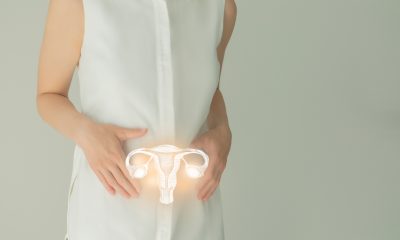

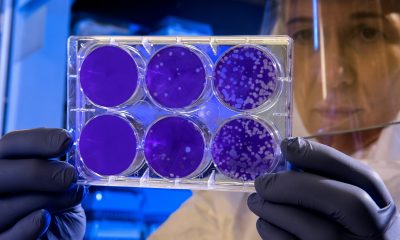



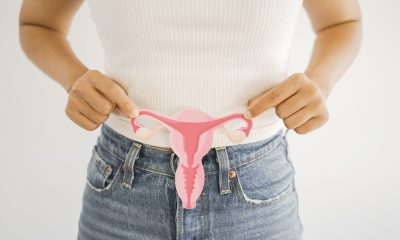





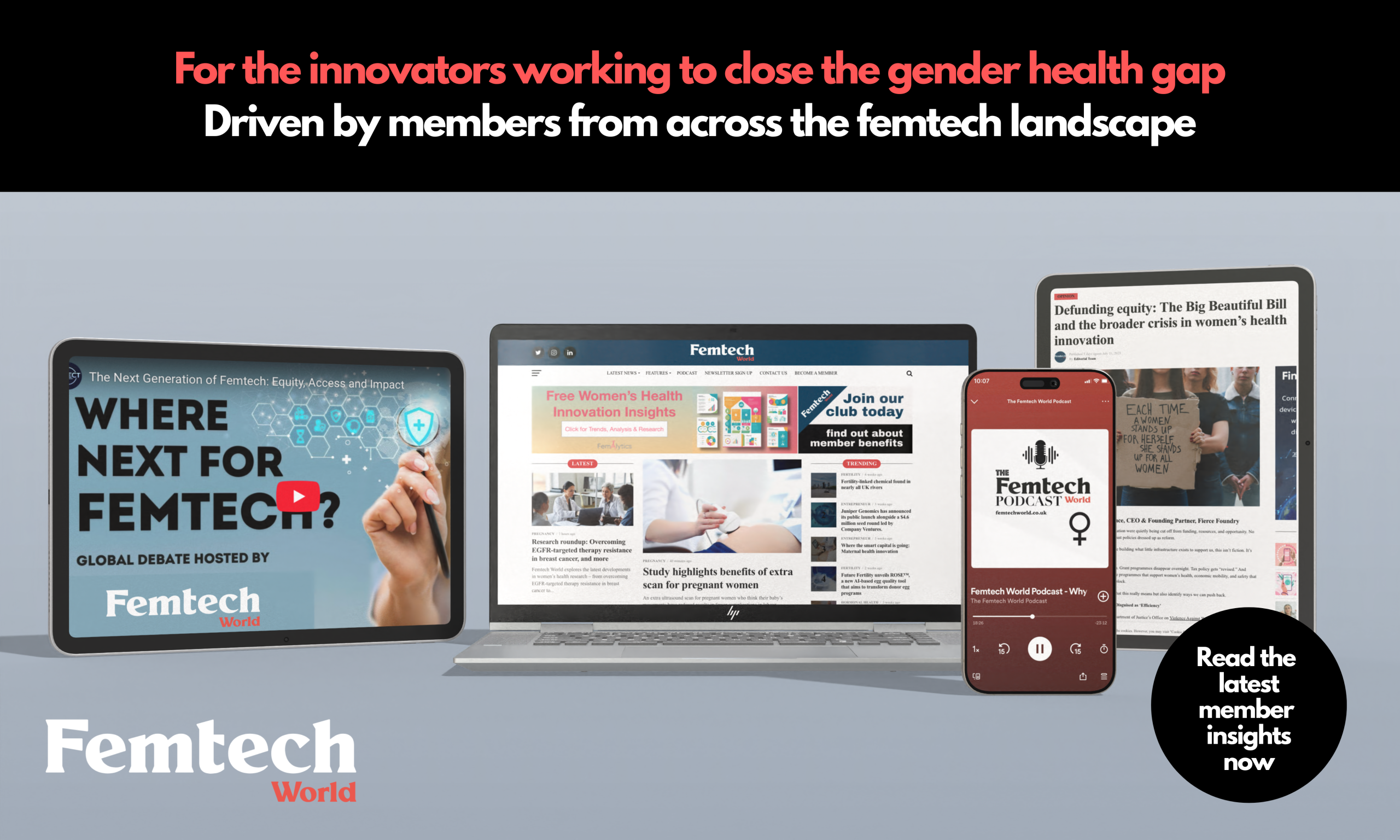












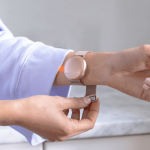

24 Comments